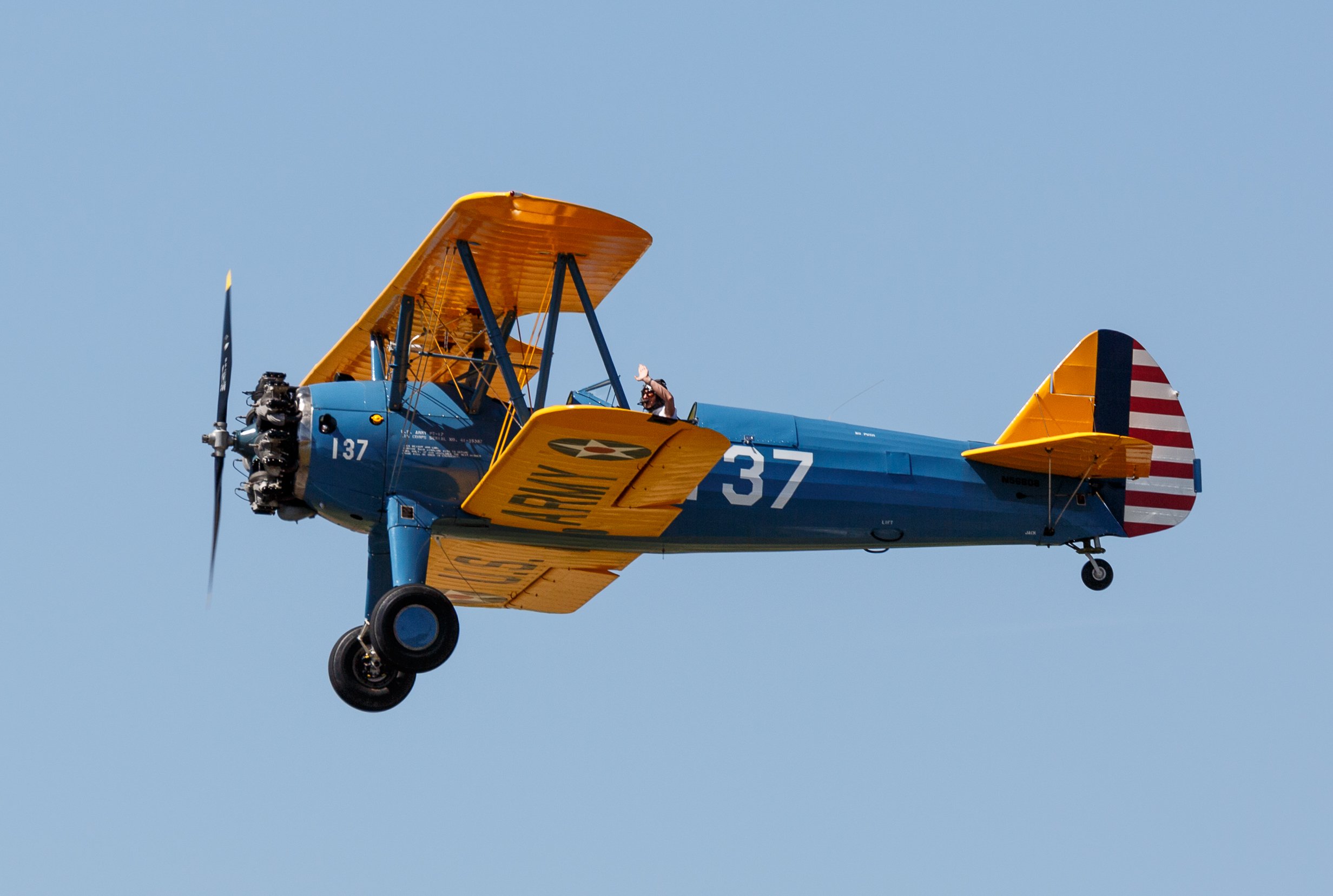PT -17 Stearman
Arguably, there are more pilots who learned to fly in the Stearman PT-17 (Primary Trainer) than in any other aircraft in aviation history. The PT-17 was a reliable and honest handling airplane in the air, which made it an ideal training machine for novice pilots. Referred to as the "Yellow Peril" by U.S. Navy pilots who experienced its tricky ground handling characteristics, the PT-17 Stearman can trace its origin back to 1926 when Lloyd C. Stearman established the Stearman Aircraft Company near Venice, California, which eventually became a subsidiary of Boeing Aircraft and produced a total of 10,000 bi-planes in six different configurations for use as a trainer during the Second World War. After World War II, surplus PT-17s could be bought for as little as $200 each and found gainful employment with airshow performers and crop- dusting companies. Eventually, the U.S. Military phased out their use of the Stearman, but some smaller Air Forces continued to operate the steady Stearman well into the 1990s.
The Museum’s PT-17 Stearman was built by Boeing in Wichita, Kansas and delivered to the United States Army Air Force on November 16, 1942 at a cost of $5,930.00. On November 18, 1942 the aircraft was flown to Maxwell Air Force Base in Montgomery, Alabama and then transferred to Jackson Army Air Base near Jackson, Mississippi on December 14, 1942. Used to train WW ll pilots, the Stearman served many years before being sold after the war to Johnny Vasey, a well-known airshow performer. After many years on the airshow circuit, in July 1971, the airplane was sold to Amoco Inc. in Chickasha, Oklahoma, and in 1978, the airplane was again sold, this time to Aerial Application Technologies (also in Oklahoma). On November 2, 1990, the Stearman was sold to the late Jeffrey L. Austin of Salem, Oregon, and in August 2022, the Stearman was donated to the Tillamook Air Museum by the Jeffrey L. Austin Living Trust.
SPECIFICATIONS
Type Two seat primary trainer
Crew One pilot, one student, in tandem
Wingspan 32 ft, 2 in
Dimensions Length 24 ft; height 9 ft, 2 in
Weight 2,717 lbs. maximum
Powerplant One 240 hp Continental R-670-5
seven-cylinder radial engine
Manufacturer Boeing Aircraft Company
PERFORMANCE
Maximum Speed 124 mph
Cruise Speed 106 mph
Ceiling 11,200 ft
Range 505 miles
Armament None
